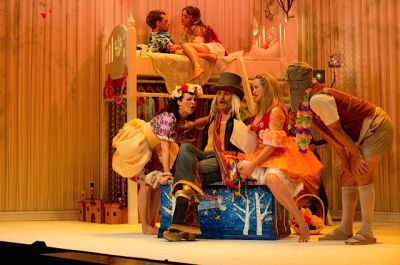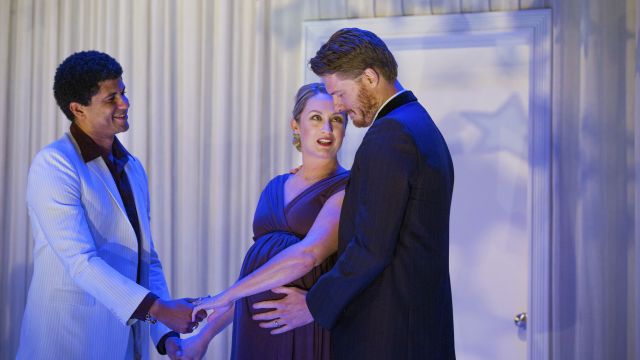The Winter’s Tale
My status as a dateless reviewer was laid bare when both couples to my left and right declined to the return after interval. Was it me or the play? I suspect the later.
For starters The Winter’s Tale is one of the more obscure of The Bard’s works, devoid of any of the more famous Shakespearean phrases or poems that dot the classics. It is part of Shakespeare’s later canon of works which commence with three acts of intense psychological drama.
But those early leavers were too hasty to exit (pursued by a bear or otherwise), as after interval followed comedy, singing and dancing which pleased those who stayed the course.
The central character is King Leontes of Sicily. In a fit of mad jealousy he suspects that his pregnant wife Hermione has been unfaithful to him, with his boyhood friend The King of Bohemia - Polixenes.
The friend in this case was played by Dorian Nkono – a fine actor of African heritage. This colour-blind casting made it slightly confusing for the audience. When the child came it was surely obvious that his friend could not have been the father? How stupid was the King to still suspect that the child was not his? Later the penny drops. This was a device by John Bell to exacerbate the foolishness of the King.
 The actor playing the King – Myles Pollard – was a little less than convincing as the Monarch, or perhaps it was the lack of any character development in the first act which grated. But in the second act he shone in the character of The Old Shepherd, a lovable rogue who discovered the abandoned royal baby. His jolly family and surrounds sang and danced with joie de vivre. Were we even at the same play?
The actor playing the King – Myles Pollard – was a little less than convincing as the Monarch, or perhaps it was the lack of any character development in the first act which grated. But in the second act he shone in the character of The Old Shepherd, a lovable rogue who discovered the abandoned royal baby. His jolly family and surrounds sang and danced with joie de vivre. Were we even at the same play?
All of the drama is set in a child’s bedroom. Young Rory Potter was the boy on opening night. His alternate, Otis Pavlovic, was sitting in the opening night audience separated from me in the second act only by the vacant seats. (I joked with him that perhaps my odor was disagreeable to my neighbours.)
The concept of focussing and designing the entire production through the eyes of a child was very satisfying.
Shadow puppetry was used to depict wild animals andthe broken toys became an effective simile for the foibles of a parent acting like a child.
The design shone as did the compelling performance of the female actors, Helen Thomson as Hermoine and Michelle Doake as Paulina.
John Bell maintains quite rightly that his company can’t keep rehashing the classics, especially with better resourced state theatre companies pulling out all stops in that department.
This was a clever production of a difficult play to stage.
David Spicer
Subscribe to our E-Newsletter, buy our latest print edition or find a Performing Arts book at Book Nook.

